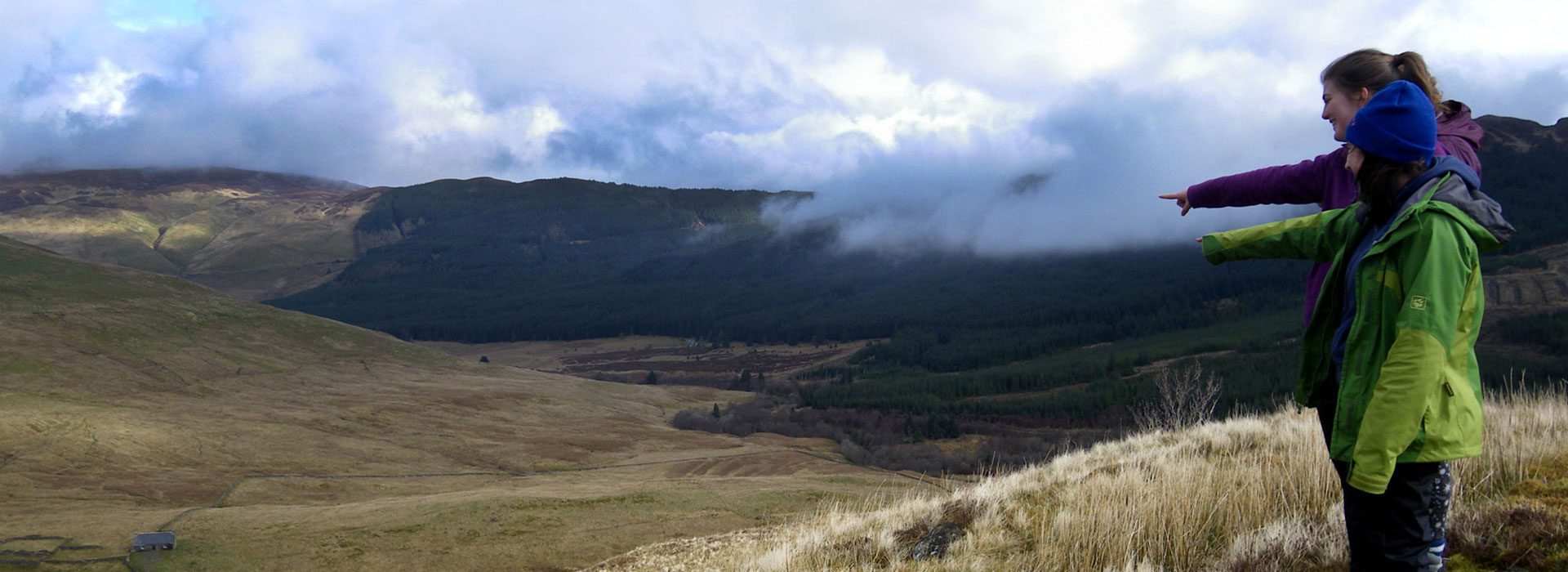
MRes Gaelic and Celtic Studies
AWARD: Master of ResearchSTUDY MODE: Distance Learning,Full-time,On-campus,Part-time
DURATION: 1 Year (full-time) / 2 Years (part-time)
CODE: N/A
COURSE LEADER: Abigail Burnyeat
COURSE CONTACT: Abigail Burnyeat ( )
SPECIAL FEATURES
The MRes Gaelic and Celtic Studies provides students with a professional grounding in the fields of Gaelic and Celtic Studies, offering them the opportunity to pursue their scholarly interests and to develop their skills in formal academic writing, analysis and communication through the medium of Gaelic.
DESCRIPTION
Students receive training in research skills and academic Gaelic writing skills, as well as tailored provision required for their chosen disciplinary area. Sabhal Mòr’s library collections provide access to an extensive variety of scholarly resources. Our Special Collections include outstanding collections of early printed Gaelic books from the seventeenth century onwards, as well as important antiquarian and manuscript collections covering Gaelic, Celtic Studies, folklore, material culture, Highland history, Gaelic development, and the history of piping. We particularly welcome applications from students seeking to make use of material from our collections in their research. The MRes Gaelic and Celtic Studies may be studied full-time over one year or part-time over two years. Students may be based at Sabhal Mòr Ostaig or elsewhere (with the expectation that there would be opportunities to visit Sabhal Mòr Ostaig and take part in relevant research activities on a regular basis).
COURSE CONTENT
Students on the MRes Gaelic and Celtic Studies work closely with their academic supervisors on a year-long research project they design together; supervision is available in the areas of:
- Historical Phonology (Professor Richard Cox)
- Dialectal Studies (Mark Wringe)
- Onomastics (Professor Richard Cox)
- Medieval to Modern Gaelic Literature (Professor Meg Bateman, Abigail Burnyeat, Iain MacPherson, Professor Máire Ní Annracháin)
- Folklore and Ethnology (Professor Hugh Cheape, Dr Decker Forrest, Dr Dòmhnall Uilleam Stiùbhart)
- Medieval and Modern History of the Highlands and Islands (Dr Dòmhnall Uilleam Stiùbhart)
- Material Culture (Professor Hugh Cheape, Dr Dòmhnall Uilleam Stiùbhart, Professor Meg Bateman)
- Socio-linguistics (Dr Tim Armstrong, Dr Marsaili MacLeod)
- Musicology (Dr John Purser, Dr Decker Forrest, Professor Hugh Cheape)
- Rural Economy (Gavin MacPherson)
Students receive training in research skills and academic Gaelic writing skills, as well as tailored provision required for their chosen disciplinary area.
Sabhal Mòr’s library collections provide access to an extensive variety of scholarly resources. Our Special Collections include outstanding collections of early printed Gaelic books from the seventeenth century onwards, as well as important antiquarian and manuscript collections covering Gaelic, Celtic Studies, folklore, material culture, Highland history, Gaelic development, and the history of piping. We particularly welcome applications from students seeking to make use of material from our collections in their research.
The MRes may be studied full-time over one year or part-time over two years. Students may be based at Sabhal Mòr Ostaig or elsewhere (with the expectation that there would be opportunities to visit Sabhal Mòr Ostaig and take part in relevant research activities on a regular basis).
Eligibility
Entry requirements are outlined here: https://www.uhi.ac.uk/en/research-enterprise/grad-school/how-to-apply/
Application process
Prospective students submit a CV and an initial project proposal outlining the research topic they would like to pursue. Students are strongly encouraged to make contact before developing their application in order to be put in touch with and discuss their project with potential supervisors.
Once Sabhal Mòr Ostaig is satisfied with the project proposal, the candidate, with the support of the lead supervisor identified for their project, will submit a formal application for admission to postgraduate study through UHI’s Graduate School.
Fees and the UHI application process are outlined at https://www.uhi.ac.uk/en/studying-at-uhi/first-steps/how-much-will-it-cost/research-postgraduate-tuition-fees/
How to apply
Prospective students submit a CV and an initial project proposal outlining the research topic they would like to pursue. Students are strongly encouraged to make contact before developing their application in order to be put in touch with and discuss their project with potential supervisors. Once Sabhal Mòr Ostaig is satisfied with the project proposal, the candidate, with the support of the lead supervisor identified for their project, will submit a formal application for admission to postgraduate study through UHI’s Graduate School. Fees and the UHI application process are outlined at https://www.uhi.ac.uk/en/studying-at-uhi/first-steps/how-much-will-it-cost/research-postgraduate-tuition-fees/ For further information, please contact Abigail Burnyeat:

